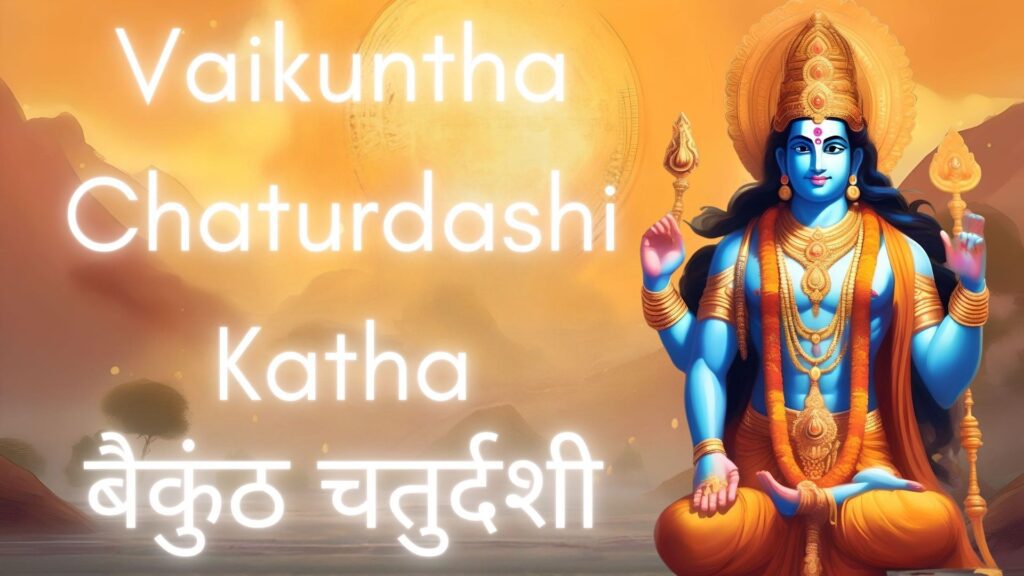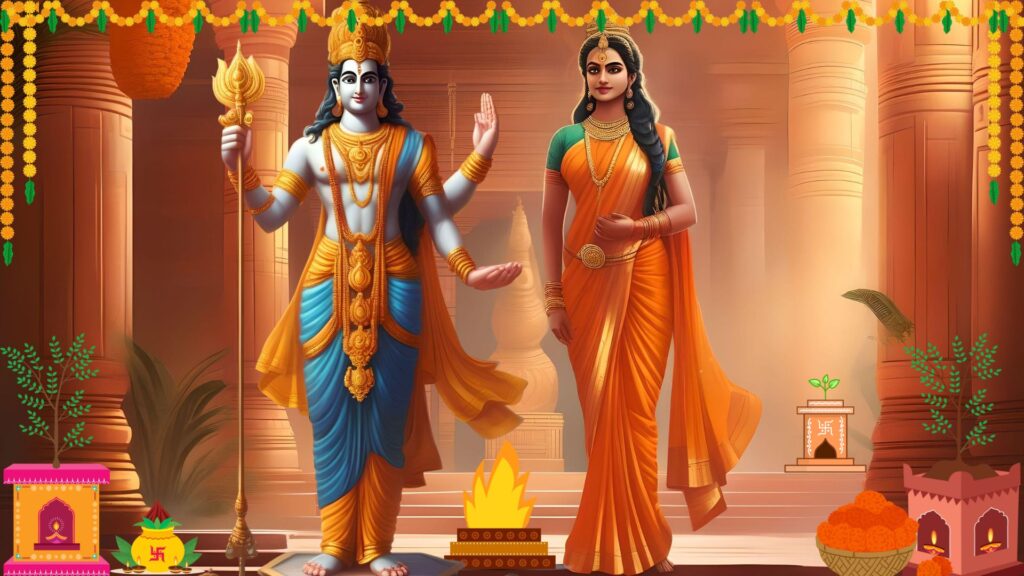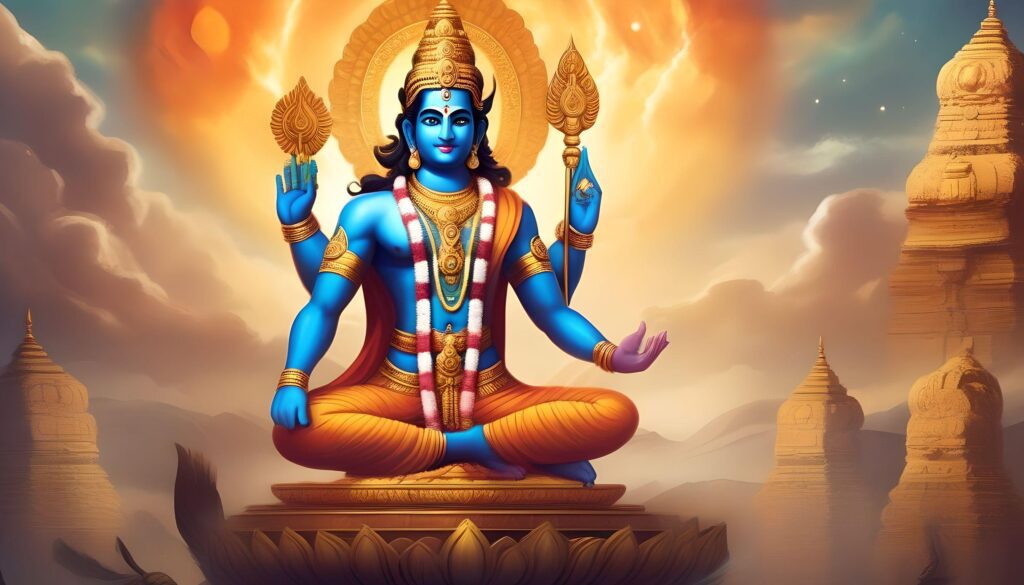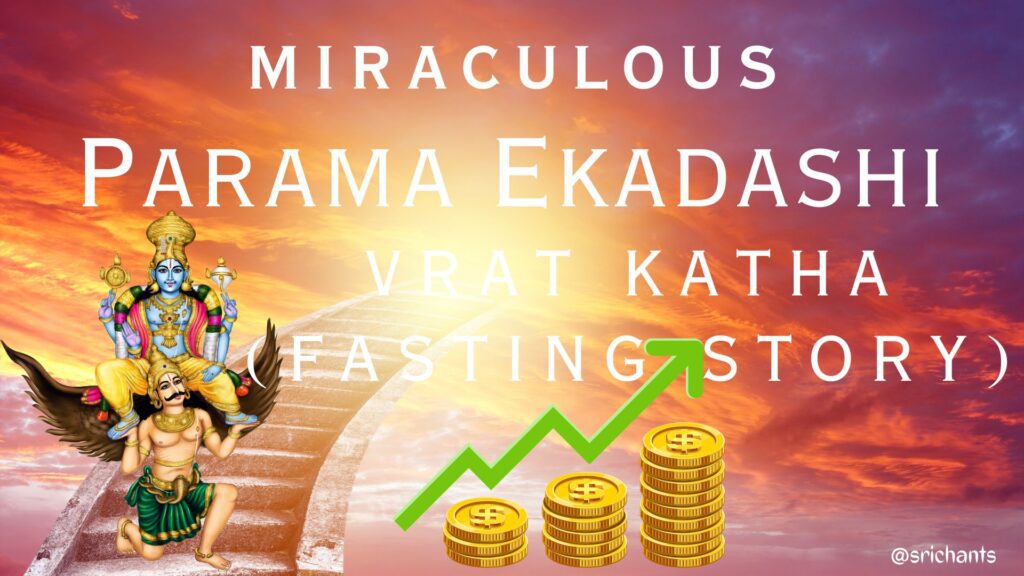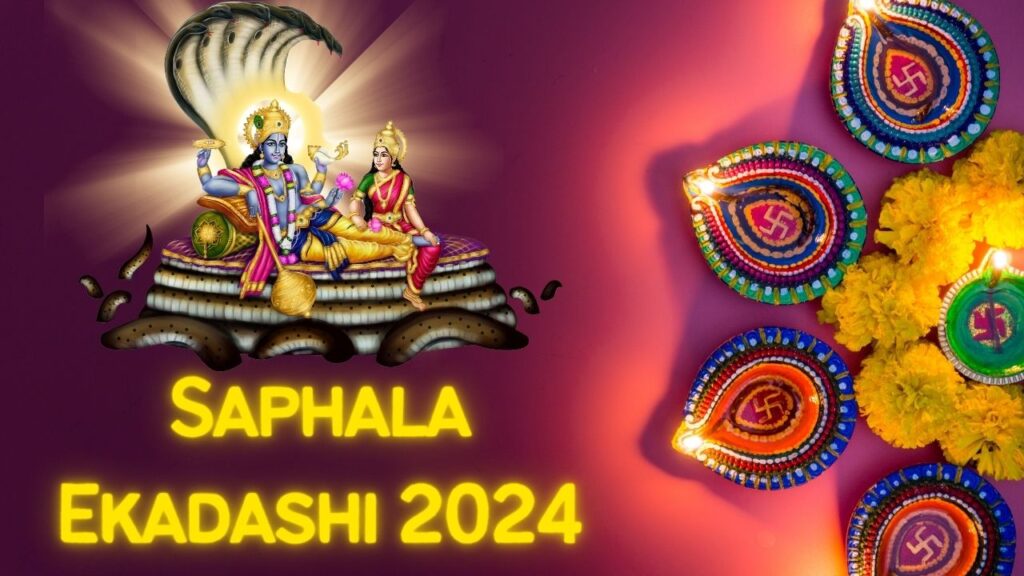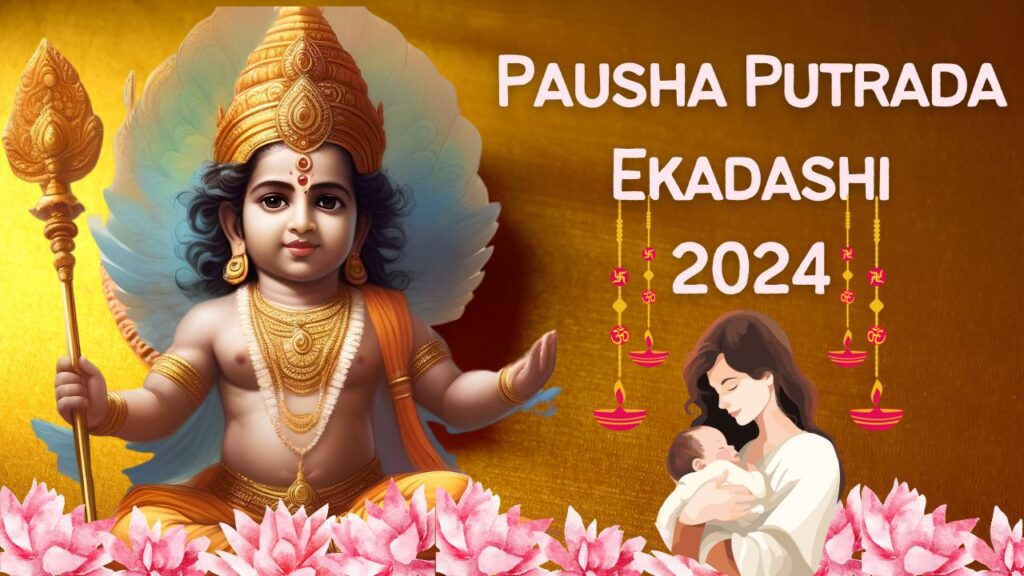Vishnu Mantra: Significance, Types, and Benefits
Hinduism regards Lord Vishnu as a very revered god, often known as the “Preserver” or “Protector” of the universe. Along with the creator Brahma and the destroyer Shiva, he forms the holy trinity (Trimurti). Together, these three gods show the interdependence of creation, preservation, and annihilation, therefore reflecting the recursive aspect of the universe. Reciting the Vishnu Mantras serves to ask Lord Vishnu for direction, favor, and safety. These strong prayers offer great spiritual meaning, inspire hope, and deepen one’s relationship with celestial energy.
This essay will cover the background, variants, and benefits of the Vishnu Mantra as well as its major influence on the daily life as well as spiritual development of its practitioners.
Origins of Vishnu Mantras
The origins of the Vishnu Mantras are detailed in several ancient Hindu texts, including the Vedas, Upanishads, and Puranas. These sacred texts, which form the bedrock of Hindu philosophy, contain praise, descriptions, and prayers directed towards several deities, most notably Lord Vishnu. The Rigveda, one of the earliest Hindu scriptures, describes Vishnu’s activities in protecting the cosmos and describes him as the giver of life. His stories are enhanced by the venerated texts such as the Bhagavad Gita, the Vishnu Purana, and others.
People believe that the mantras for Lord Vishnu encompass all of his virtues and energy, including compassion, kindness, and protection. Every mantra has a purpose and should be chanted with reverence and commitment. Mantras have grown in popularity throughout the centuries due to the widespread use of them in Hindu worship, rituals, and meditation practices.
The Significance of Vishnu Mantras
Mantras are rather important in Hinduism. Root term “mantra” (meaning “instrument of thought”) originates from “tra,” (meaning “an instrument or tool”). A mantra can so enable one to focus, guide their energy, and create a relationship with a higher spiritual consciousness. Reciting the Vishnu Mantra, people hope to get blessings from Lord Vishnu as well as mental and spiritual defense.
Lord Vishnu’s four limbs—a lotus flower ( Padma), a mace (Gada), a discus (Shankha), and a conch shell (Chakra) each reflect a different representational item. Among other things, these constitute virtue, power, safety, and holiness of spirit. Reciting Vishnu Mantras is a means of calling for Lord Vishnu’s support in building one’s character, keeping true to one’s principles, and overcoming challenges to spiritual development by so evoking these traits of him.
The Vishnu Mantras are absolutely essential when you wish steadiness and calm in your life. One is said to attain harmony, wealth, and health by asking Vishnu, the sustainer of the universe, through these mantras.
Types of Vishnu Mantras and Their Meanings
There are various Vishnu Mantras, each designed for different purposes and blessings. Here are some of the most popular Vishnu Mantras and their meanings:
1. Om Namo Bhagavate Vasudevaya
- Meaning: This mantra translates to “I bow to Lord Vasudeva (Vishnu).”
- Significance: Known as the Dwadasakshari Mantra, meaning it has 12 syllables, this mantra is highly revered and is often chanted by devotees who seek peace, inner strength, and divine guidance. The mantra is believed to connect the devotee with the higher self, promoting unity, tranquility, and spiritual wisdom.
- Benefits: Regular chanting of this mantra can help reduce negative thoughts, promote inner peace, and enhance concentration. It is also believed to provide protection against evil forces and help in overcoming obstacles.
2. Om Vishnave Namah
- Meaning: This mantra translates to “I bow to Lord Vishnu.”
- Significance: This is a shorter mantra that is simple yet powerful. It is ideal for beginners who wish to start their journey of Vishnu worship. By chanting this mantra, devotees express their respect and gratitude to Vishnu as the preserver of life and protector of the universe.
- Benefits: This mantra is known to bring harmony and balance into one’s life. It can help the individual to maintain calmness, stability, and patience.
3. Om Shantakaram Bhujagashayanam Padmanabham Suresham
- Full Mantra: Om Shantakaram Bhujagashayanam Padmanabham Suresham Vishvadharam Gaganasadrisham Meghavarnam Shubhangam Lakshmi Kantam Kamala Nayanam Yogibhirdhyanagamyam Vande Vishnum Bhava Bhaya Haram Sarva Lokaika Natham.
- Meaning: This mantra describes Lord Vishnu as the embodiment of peace, lying on a serpent, with a lotus growing from his navel, and as the Lord of all gods. It praises his form and his role as the protector of the universe.
- Significance: This mantra is often recited during Vishnu puja and other auspicious ceremonies. It symbolizes Lord Vishnu’s tranquility, strength, and compassion for all beings.
- Benefits: Regular chanting of this mantra helps to bring inner peace, reduce anxiety, and eliminate fears. It also enhances concentration and is particularly useful for meditation practices.
4. Maha Mantra – Hare Krishna, Hare Krishna, Krishna Krishna, Hare Hare; Hare Rama, Hare Rama, Rama Rama, Hare Hare
- Meaning: This mantra calls upon both Krishna and Rama, incarnations of Vishnu, and is widely used by the followers of the Hare Krishna movement.
- Significance: The Maha Mantra is popular for its simplicity and effectiveness in creating a deep connection with Lord Krishna and Lord Rama. It emphasizes devotion and surrender to divine will.
- Benefits: Chanting this mantra regularly can bring immense joy, eliminate stress, and instill a sense of spiritual fulfillment. It is also believed to purify the mind and soul, leading to a more positive and contented life.
5. Om Lakshmi Narayanaya Namah
- Meaning: This mantra translates to “I bow to Lakshmi and Narayana (Vishnu and his consort).”
- Significance: This mantra is dedicated to both Vishnu and Lakshmi, his divine consort and the goddess of wealth and prosperity. It is commonly chanted by those who seek spiritual and material abundance.
- Benefits: This mantra is known to bring wealth, prosperity, and peace into one’s life. It also fosters a sense of gratitude, which leads to greater satisfaction and fulfillment in life.
Benefits of Chanting Vishnu Mantras
The Vishnu Mantras are not only spiritually powerful but also beneficial for mental and physical well-being. Here are some of the key benefits:
- Enhanced Mental Clarity: Regular chanting of Vishnu Mantras helps improve focus, clear the mind, and promote mental clarity. This is especially helpful for students, professionals, and those dealing with stress.
- Emotional Stability: The calming nature of Vishnu Mantras can help reduce anxiety and foster emotional balance. They promote a positive outlook on life, making it easier to handle challenges and conflicts.
- Increased Positivity: Vishnu Mantras are believed to purify the mind, leading to a more positive mindset. Negative thoughts and emotions are gradually replaced by feelings of love, kindness, and compassion.
- Protection and Peace: Many Vishnu Mantras are recited for protection against evil forces and to remove obstacles from one’s life. Chanting these mantras creates a shield of positive energy around the individual, promoting peace and well-being.
- Spiritual Growth: Regular chanting leads to a deeper connection with the divine, helping individuals grow spiritually. Vishnu Mantras promote self-awareness, inner peace, and contentment, which are essential for spiritual progress.
- Harmony in Relationships: Chanting Vishnu Mantras with a sincere heart can bring harmony to relationships, as they foster patience, understanding, and empathy. This is especially beneficial for families and couples.
How to Chant Vishnu Mantras Effectively
To gain the full benefits of Vishnu Mantras, it is essential to chant them with devotion, focus, and respect. Here are some guidelines for effective chanting:
- Create a Peaceful Environment: Choose a quiet and clean space where you can chant without interruptions. Lighting a candle or incense can help create a serene ambiance.
- Use a Mala (Rosary): A mala with 108 beads is often used for chanting. Each bead represents one chant, and it helps the practitioner keep track while maintaining focus.
- Pronounce Correctly: Ensure that each syllable is pronounced accurately. Proper pronunciation enhances the mantra’s vibrations, making it more effective.
- Set a Regular Time: Chanting at a specific time each day, such as early morning or evening, helps create a routine, making it easier to incorporate into daily life.
- Focus on the Meaning: Understanding the mantra’s meaning helps deepen the connection to the deity and makes chanting a more meaningful experience.
- Chant with Devotion: The most important aspect of chanting is devotion. When chanted with a pure heart, Vishnu Mantras can yield significant spiritual benefits
.
Conclusion
The Vishnu Mantras are more than just words; they are heavenly harmonies that embody all of Lord Vishnu’s qualities and energies. Because they lead to serenity, optimism, and spiritual growth, these mantras are an integral part of Hindu religious practices. No matter what you’re seeking—peace of mind, financial success, or protection—Vishnu Mantras can help you get it. People can overcome challenges, live in harmony and balance, and strengthen their connection to a higher power via dedicated and heartfelt chanting.
Buy Spiritual books – click here

